
 Flash News
Flash News
Accident on the Vlora-Qeparo axis, one injured
Obtained with forged documents, the Prosecution seizes 276 hectares of land in Fier
Diaspora vote scandal/ Berisha publishes evidence: DHL delivered the envelopes without any signature to the SP offices
Salianj's release/Berisha: He was politically condemned by Rama and Xhafa!
Knife attack on Peshkopia Boulevard
TikTok shutdown/ Austrian media: Rama benefited politically from the app ban
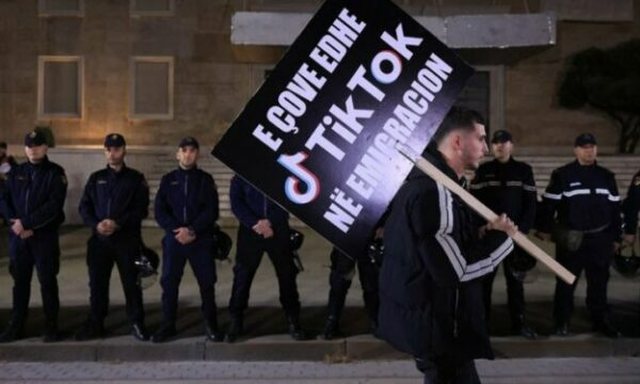
Austrian public media network ORF recently published an article about the ban on the TikTok app in Albania.
The article states, among other things, that Prime Minister Edi Rama, who won the May 11 elections, has politically benefited from the ban on TikTok in Albania.
In the documentary 'Country without TikTok - Albania as a testing laboratory', it is emphasized that the initiator of the closure of TikTok is Rama, who himself has used the application.
The article raises claims that in the best-case scenario this is simply a PR stunt, while in the worst-case scenario, the government of an EU candidate country has gained a powerful tool that no one can take away.
Full Article:
In March 2025, Albania became the first country in Europe to impose a complete ban on TikTok for twelve months. The reason was a murder in a school a few months earlier. What appears to be a measure for the welfare of children also has disadvantages in terms of democratic politics. Does the Albanian government’s ban on TikTok actually serve to protect young people? Or is it a political tool of power to control the digital public sphere?
The Chinese short-video app TikTok is one of the most popular social networks worldwide. More than 1.6 billion people use it, mostly young people. However, the platform not only hosts dance and cat videos, but also problematic content: bullying, hate speech and religious fanaticism.
Western democracies are hesitant to confront TikTok. In Austria, the app is banned from the work phones of civil servants and ministry employees. The US wants to force Chinese parent company ByteDance to sell its US business.
Focus on Albania
In November 2024, a 14-year-old boy was stabbed to death by a classmate at a school in Tirana. The murder led to a ban on TikTok in Albania, but what exactly happened?
Franziska Tschinderle visited the parents of the murdered boy. His name, Martin Cani, is now known throughout the country. But the incident remains a mystery. Above all, the question of what role social media platforms played in this dispute remains a mystery, since Martin did not even have TikTok. Instead of being online, he preferred to spend his time on the football field.
Edi Rama, the prime minister of Albania and the initiator of the ban, is the kind of politician who would go viral on TikTok. No head of government in the Balkans uses social media as skillfully as the former basketball player and trained artist. This is partly because Rama deviates from the image of a classic statesman.
During the election campaign, he sometimes appears in sweatpants and white sneakers. Rama has his own podcast and goes live on Facebook twice a week to discuss things with his followers. Why would someone like him ban a platform from which he would personally benefit?
Protecting children against censorship
The opposition in Albania believes it knows the answer. They are talking about censorship on the eve of the parliamentary elections to be held in Albania on May 11, 2025.
In March 2025, an Albanian cybersecurity expert named Besmir Semanaj spoke out. He worked for Albania’s largest telecommunications provider for years and now lives in Vienna. In a Facebook post, Semanaj revealed that the government was implementing a procedure called “Deep Packet Inspection” (DPI). This is, in very simple terms, a technical process that can be used to filter data packets.
Authorities in Albania insist that DPI is being used only to block TikTok. But international experts also have legitimate questions. Authoritarian states like Turkey have used DPI for years to censor the internet or block access to the internet during protests.
Politically, Edi Rama seems to be benefiting from the ban. He won the elections on May 11, 2025, with an absolute majority. There has also been no criticism of the controversial ban from the EU, and mass protests have been avoided.
Three scenarios
While the public is no longer concerned about this issue, author Franziska Tschinderle takes stock and dares to look to the future. She has three theories about what this ban could be about. In the best case scenario, it is simply a PR stunt, and the TikTok ban will be history in a few months. In the worst case scenario, the government of an EU candidate country has acquired a powerful tool that no one can take away.
Latest news



Threatened with dismissals, Rama arrives at the Fier municipality
2025-07-08 16:39:19
Extreme temperatures temporarily close Acropolis in Greece
2025-07-08 16:30:34

A plot of cannabis is discovered in Mazha, Kruja
2025-07-08 16:13:48

Republika Srpska allocates additional 22 million euros for lobbying in the US
2025-07-08 15:52:04

Spices that protect you from mosquitoes!
2025-07-08 15:30:03

Accident on the Vlora-Qeparo axis, one injured
2025-07-08 15:11:52
Berat, 17 years part of UNESCO's world heritage
2025-07-08 15:03:30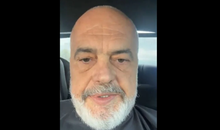
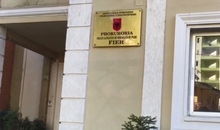

Cost of living increases, inflation rises to 2.4% in June, driven by food
2025-07-08 14:29:54
VIDEO/ Restaurant roof collapses in Italy, one victim and ten injured
2025-07-08 14:18:44
Requested release from cell, Supreme Court leaves Veliaj in prison
2025-07-08 14:07:41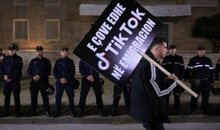
TikTok shutdown/ Austrian media: Rama benefited politically from the app ban
2025-07-08 13:48:25
Acropolis temporarily closed due to heat
2025-07-08 13:31:09

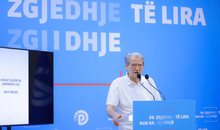
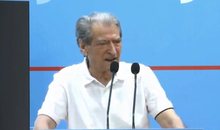
Salianj's release/Berisha: He was politically condemned by Rama and Xhafa!
2025-07-08 13:00:13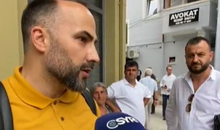

Knife attack on Peshkopia Boulevard
2025-07-08 12:44:10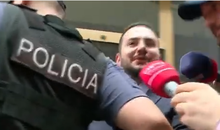


Fier Court decides on the conditional release of Ervin Salianj
2025-07-08 12:15:23
Cost of living increases, inflation rises to 2.4% in June due to food
2025-07-08 12:00:16

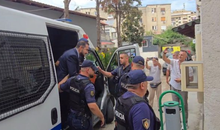
Requesting conditional release, Ervin Salianji arrives at the Fier Court
2025-07-08 11:16:36
The first phase of university applications begins today
2025-07-08 11:10:52
Fire in Lura, flames endanger the National Park
2025-07-08 10:53:43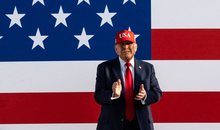
Trump warns of 35% tariffs on Serbia and 30% on Bosnia and Herzegovina
2025-07-08 10:37:32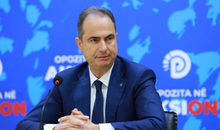
Thethi rooster and the dung cock
2025-07-08 10:24:01

Fire in Dukat endangers Llogara National Park
2025-07-08 10:01:39
International drug search: 36-year-old arrested in Durrës (NAME)
2025-07-08 09:50:48
Thethi, tourists "criticize" modern trend
2025-07-08 09:39:54
Fire on Mount Dukat still active, Llogara National Park at risk
2025-07-08 09:28:12
Veliaj's appeal to be heard today in the High Court
2025-07-08 09:16:02
"Bad sign for democracy"/ Parliament neglects reporting by institutions
2025-07-08 09:04:56
Today's hearing at the Fier Court, Salianji requests conditional release
2025-07-08 08:56:39

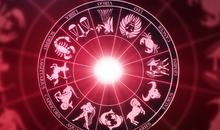
Horoscope, what do the stars have in store for you today?
2025-07-08 08:16:19
Weather forecast/ How temperatures will vary throughout the day
2025-07-08 08:02:37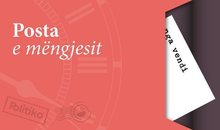
Morning Post/ In 2 lines: What mattered yesterday in Albania
2025-07-08 07:48:30

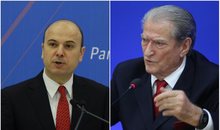
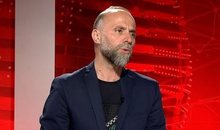


Marrëdhënia që s’është romancë, por s’është as thjesht kolegiale
2025-07-07 21:39:13
Citizen is asked to pay 2.5 million for a non-existent meter
2025-07-07 21:28:03




What is the ideal air conditioner temperature in summer?
2025-07-07 20:53:46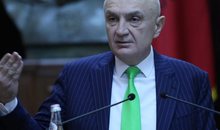
GJKKO left him in prison, Meta appeals the decision
2025-07-07 20:38:05
Where is Ronaldo after missing Diogo Jota's funeral?
2025-07-07 20:38:04

Messages from the author who killed Ilaria Sulla in Rome are revealed
2025-07-07 20:20:12
At least 91 dead in Texas floods
2025-07-07 20:12:02
Elbasan, choked by smoke, scorched by conscience
2025-07-07 19:48:16

Swarm of bees attacks citizens in France, 24 people end up in hospital
2025-07-07 19:32:03
Dementia/Hearing loss may be a warning sign
2025-07-07 19:13:06
The decision for Malltez, Gjokutaj: Boomerang for SPAK and the Court
2025-07-07 19:01:08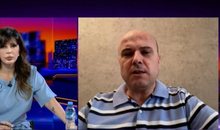

Former Supreme Court member acquitted of asset concealment
2025-07-07 18:36:40

WIIW expert in Politiko: Brain drain is steadily weakening the Albanian economy
2025-07-07 18:11:41
Heart health is at risk from extreme heat, here's what you should be careful of
2025-07-07 18:10:18
Today Gert Bogdani would celebrate, Edlira Çepani's touching dedication
2025-07-07 17:40:45




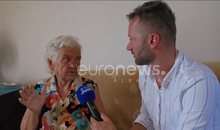

The striker severely accuses the Fenerbahce club: They tried to drug me
2025-07-07 16:21:03
A decomposed body is found in Kolonjë, initial suspicions
2025-07-07 16:03:31
Accident in Saranda, car hits motorcycle, one injured
2025-07-07 15:58:56

The most fertile age for men and women
2025-07-07 15:40:52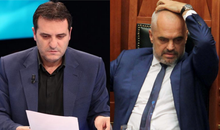
Locals, Rama candidate in 5 municipalities
2025-07-07 15:32:22
Blushi: Meta's criminal kidnapping, incomparable even to Navalny's in Russia
2025-07-07 15:20:34
Meet the iPhone 17 Pro, the main innovations in design and technology
2025-07-07 15:09:09
Why the release of Abi Malltez does not free him; much less Albania
2025-07-07 15:00:12
‘Lidhjet klienteliste’ të mjekëve mbushin recetat e pacientëve
2025-07-07 14:57:33
Poland imposes border controls with Germany and Lithuania
2025-07-07 14:48:15

Caught transporting firearms from Kosovo to Albania, young man arrested (NAME)
2025-07-07 14:37:47
Theo Hernandez flies to Saudi Arabia for medical check-ups
2025-07-07 14:26:47

